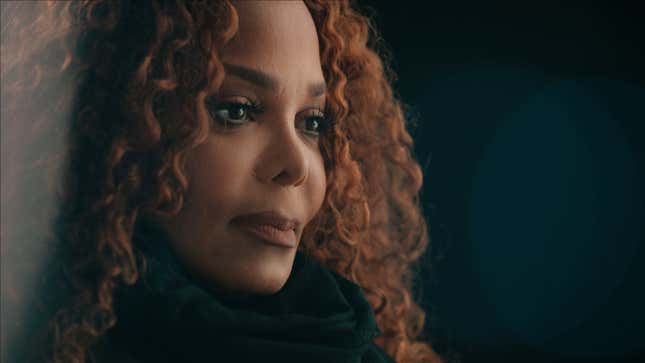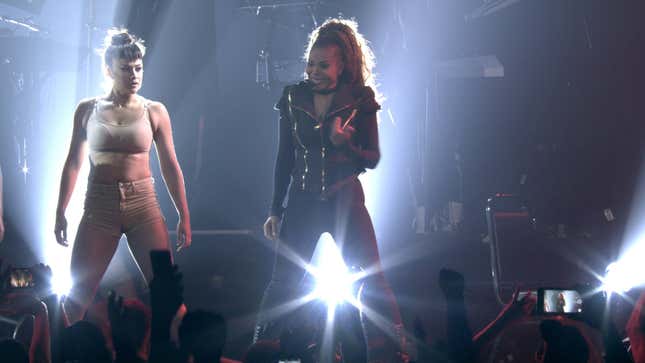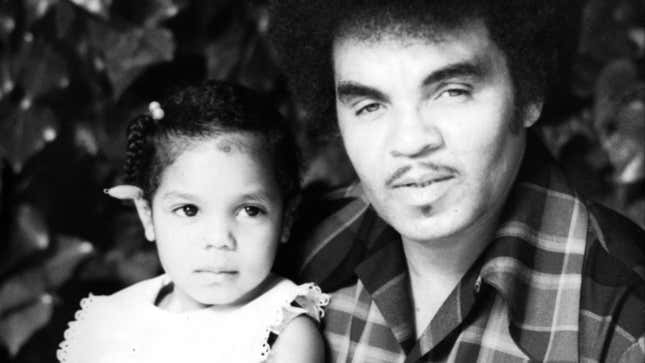Janet Jackson’s Lifetime Doc Is a Fine Primer, But Lacks Revelations
JANET JACKSON. has some incredible never-before-seen footage, but offers little else to anyone who's been paying attention.
EntertainmentMusic

“There’s always an underlying situation that you know nothing about,” says Rebbie Jackson, the oldest of the showbiz Jackson clan siblings, referring to her youngest sister, Janet. The “underlying situation” being referenced is Janet’s nearly 10-year-marriage to her collaborator René Elizondo Jr., which she managed to keep secret from the public, even at the height of her superstardom in the ‘90s, until they split in 1999.
Rebbie’s quote, included in the four-episode, career-spanning documentary JANET JACKSON., which premieres Friday on Lifetime, is apt even when speaking more generally about Janet. For as frank as Janet has proven herself to be (especially on the subject of sex), she’s nonetheless maintained an old-school mystique via a fierce sense of privacy and explicit unwillingness to venture into territory that makes her uncomfortable. (There’s a moment in the doc when she starts weeping recalling another ended relationship, her brief marriage to singer James DeBarge when she was 18. She then asks director Benjamin Hirsch if they can move on to another subject.) Janet’s mastered a way of entrancing fans that may read as alien in the context of our contemporary culture, when celebrities have the ability to share their every thought via social media (and many seemingly do): Give them enough so that they crave another bite.
You might think that a splashy documentary event—the product of five years of filming that kicked off during her 2017 tour, we learn via title card—would mark an opportunity to turn toe and bare more of her inner life than ever, but JANET JACKSON. is pretty perfunctory stuff. In the two episodes shared with critics in advance of the premiere, the biggest revelation comes in the form of a denial. Janet is confronted with the longstanding rumor that she gave birth to DeBarge’s baby in the ‘80s, but sent the child away (possibly to be cared for by Rebbie) to continue her career’s ascent. Without a straightforward, “No, it isn’t true,” Janet and Rebbie peel away the ridiculousness of the claim—Janet gained weight during the time from birth control, the supposed baby referred to in the tabloids was actually Rebbie’s, and the very notion of hiding a child is outside of Janet’s morality. “I could never keep a child away from James,” she tells the camera. The potential reveal is teased heavily in the preceding episode’s preview, but it’s ultimately yet another fire at the rumor mill extinguished by yet another Jackson.
-

-

-

-

-

-

-

-

-

-

-

-

-

-

-

-

-

-

-

-

-

-

-

-

-

-

-

-

-

-

-

-

-

-

-

-

-

-

-

-










































